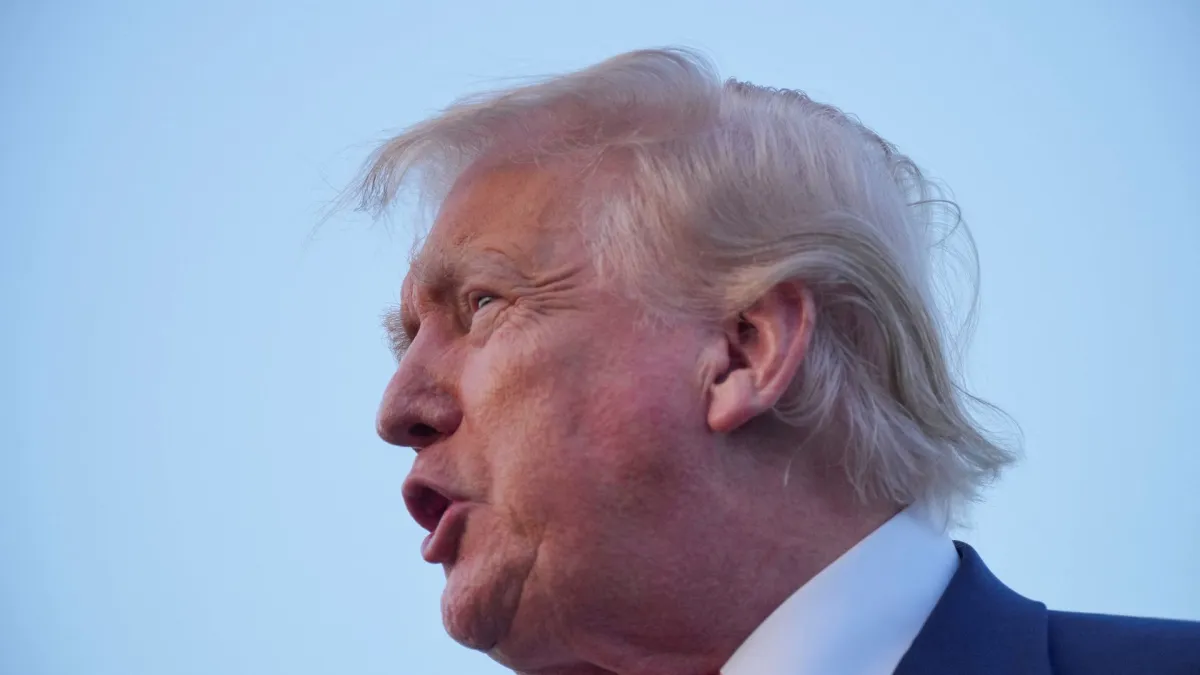
The Senate left Washington until after Labor Day following a rare Saturday session that ended with a dramatic breakdown in bipartisan negotiations over government funding and confirmations for President Donald Trump’s nominees — a collapse that saw Trump urge Republican lawmakers to tell Senate Minority Leader Chuck Schumer to “GO TO HELL.” September is going to be tense.
How we got here: Trump and Republicans have been frustrated by Democrats’ dragging out the confirmation process, leaving dozens of Trump’s nominations in limbo. Senate Majority Leader John Thune and Senate Minority Leader Chuck Schumer reportedly thought they had a deal to advance more of Trump’s stalled picks. “Schumer saw this as a two-stage deal,” Punchbowl News reports. “Democrats would agree to move quickly on a ‘small batch’ of nominees immediately if Trump unfroze funding for NIH and some foreign aid. Democrats would then greenlight a second tranche of nominees in October if the White House didn’t move forward on rescissions.”
But Trump, who had insisted the Senate stay in session this month and approve his nominees, reportedly surprised both Democrats and Republicans by rejecting the deal. In a post on social media, he called Democrats’ demand to unfreeze congressionally approved funding as “egregious and unprecedented” and lashed out at Schumer.
“Tell Schumer, who is under tremendous political pressure from within his own party, the Radical Left Lunatics, to GO TO HELL!” Trump wrote. “Do not accept the offer, go home and explain to your constituents what bad people the Democrats are, and what a great job the Republicans are doing, and have done, for our Country.”
The ‘nuclear option’: Without a deal, and facing pressure from the president, Republican lawmakers made clear they are prepared to change Senate rules when they return next month to speed confirmations of lower-level nominees. That, along with White House threats to send Congress another rescissions package, could threaten the government funding process, making a shutdown fight more likely. Schumer warned that changing the rules would be “a huge mistake.”
The collapse in talks comes after signs of bipartisan progress as recently as Friday, when the Senate overwhelmingly approved three fiscal year 2026 spending bills covering the Departments of Agriculture and Veterans Affairs as well as military construction, the Food and Drug Administration and the Legislative Branch.
Those good vibes fizzled quickly. When talks fell apart, Schumer blamed Trump for pulling the rug out from Republican negotiators.
“Donald Trump attempted to steamroll the Senate to put in place his historically unqualified nominees, but Senate Democrats wouldn't let him,” he told reporters. “In a fit of rage, Trump threw in the towel, sent Republicans home, and was unable to do the basic work of negotiating. Is this the “Art of the Deal”? Posture, cajole, stamp your feet, and then give up? This says it all. Donald Trump tried to bully us, go around us, threaten us, call us names—but he got nothing, and he walked away with his tail between his legs.”
Democratic leaders demand a ‘Big Four’ meeting: Schumer and House Minority Leader Hakeem Jeffries on Monday sent a letter to Thune and House Speaker Mike Johnson requesting a meeting to discuss the path forward on funding the government ahead of the September 30 shutdown deadline. They added a couple of jabs about Republicans causing 15 million Americans to lose their healthcare coverage.
“The Senate recently demonstrated that Congress is still able to achieve bipartisan appropriations legislation for the American people when the legislative process is permitted to work,” the two Democrats wrote. “Today, we wish to reiterate that we should pursue a bipartisan path—you can work with us to protect health care for the American people and chart a better course for this country.”
The bottom line: When the House and Senate return after Labor Day, they’ll have four weeks to avoid a shutdown. We already knew lawmakers were going to have to pass a stopgap funding bill by September 30, but this clash doesn’t bode well for a bipartisan deal to fund the government. Next month could get very messy.